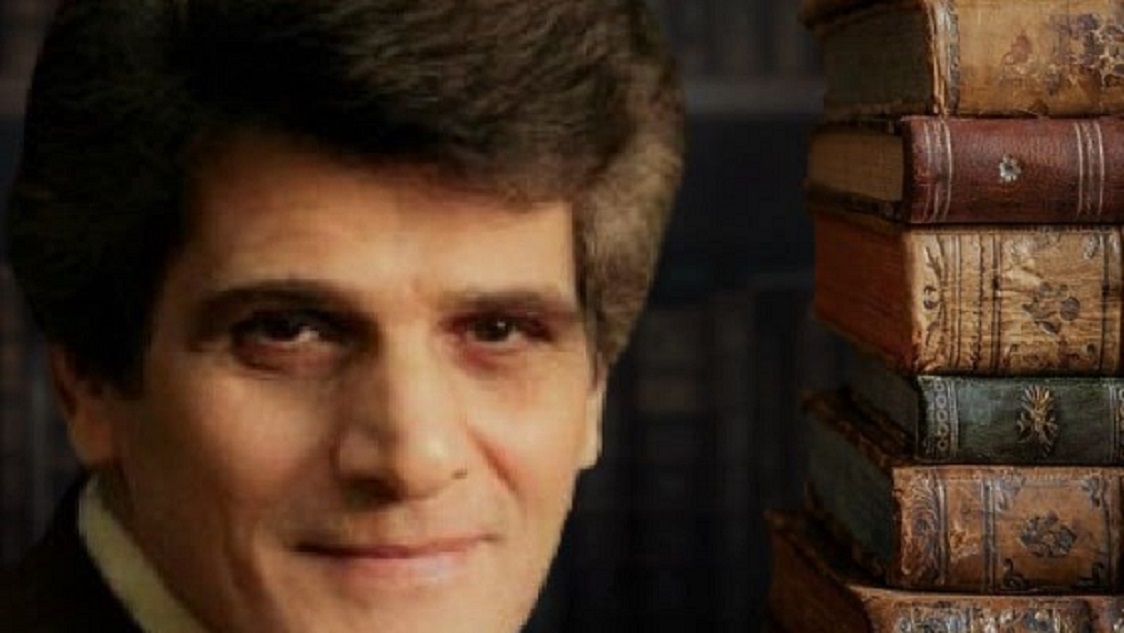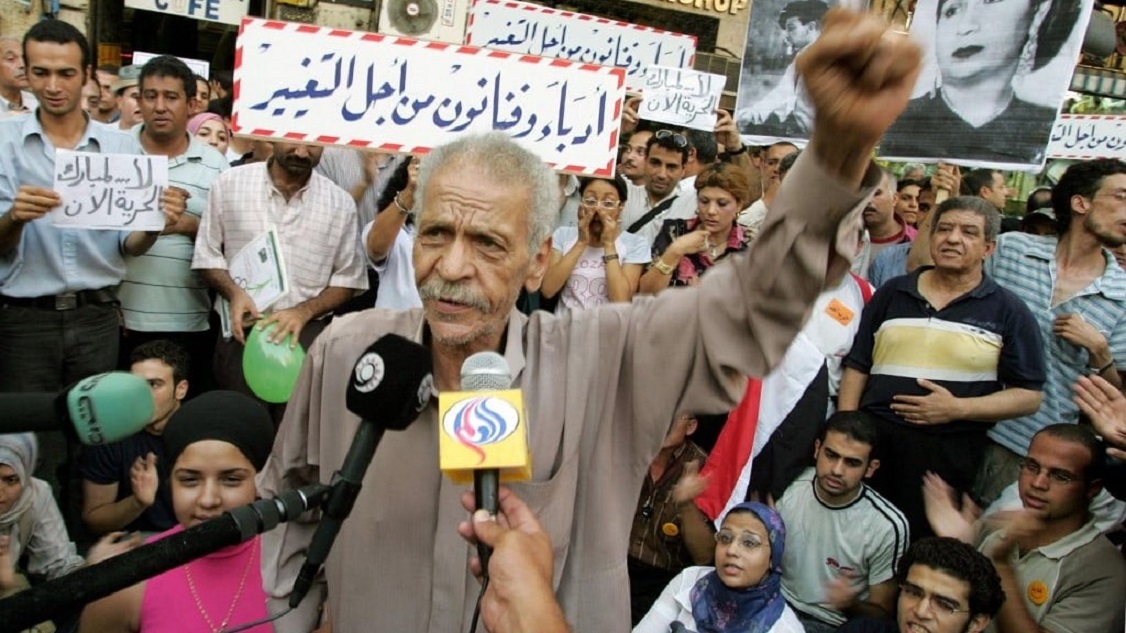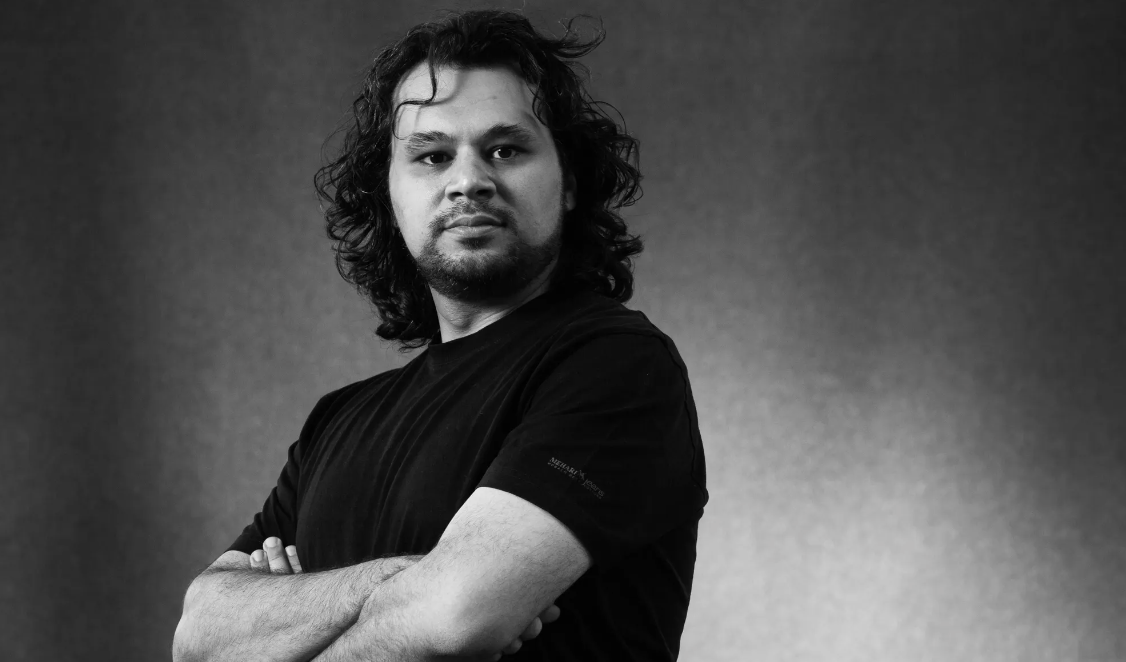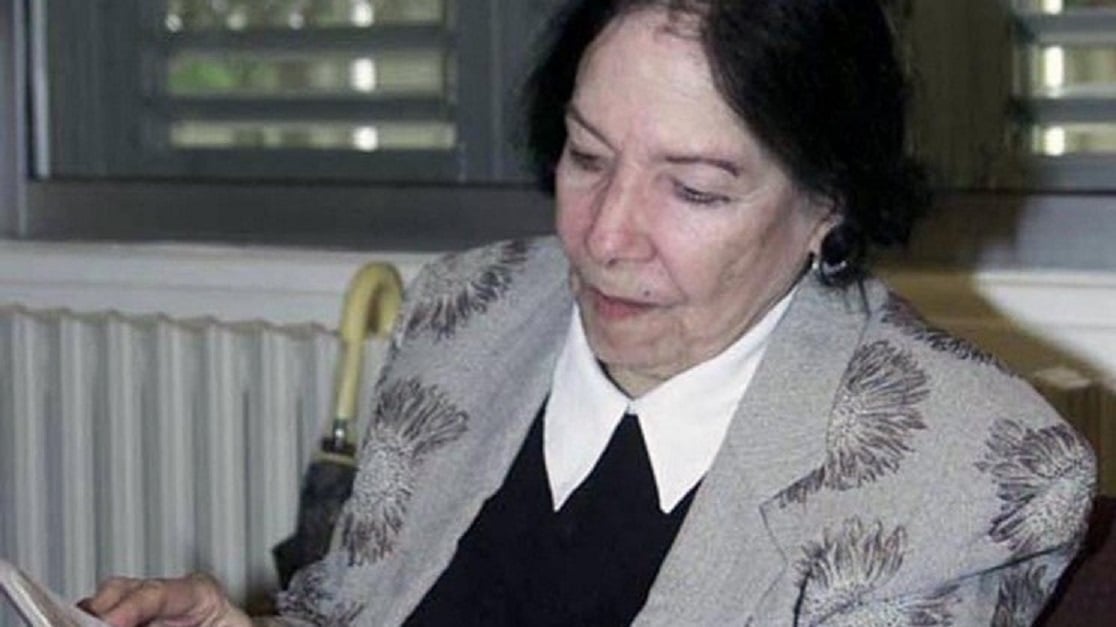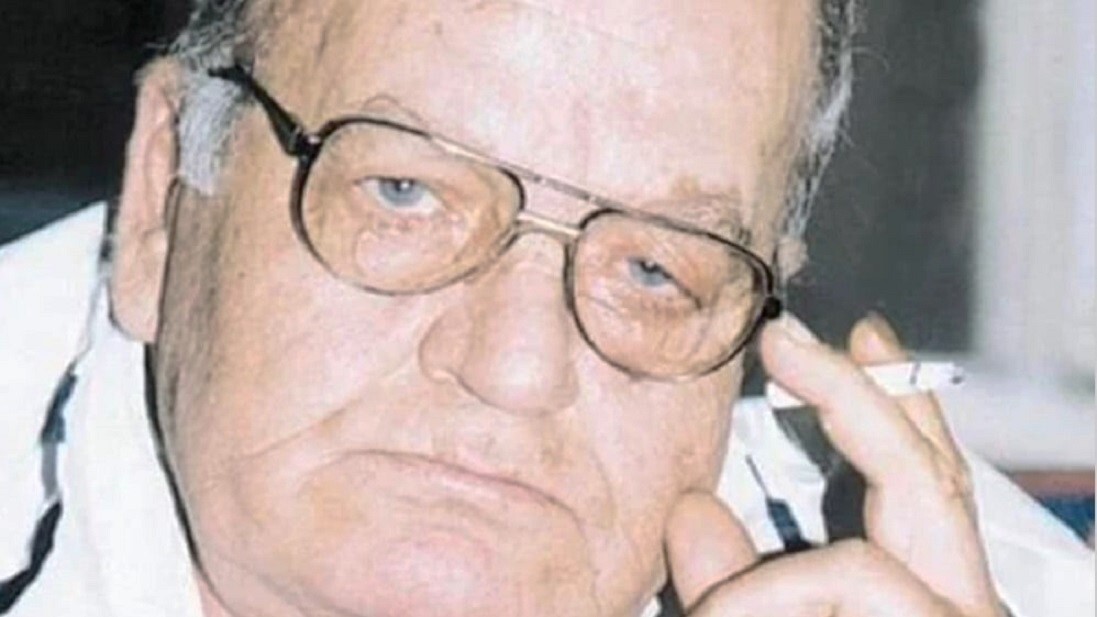Freedom, justice, Palestine: Five revolutionary modern Arab poets
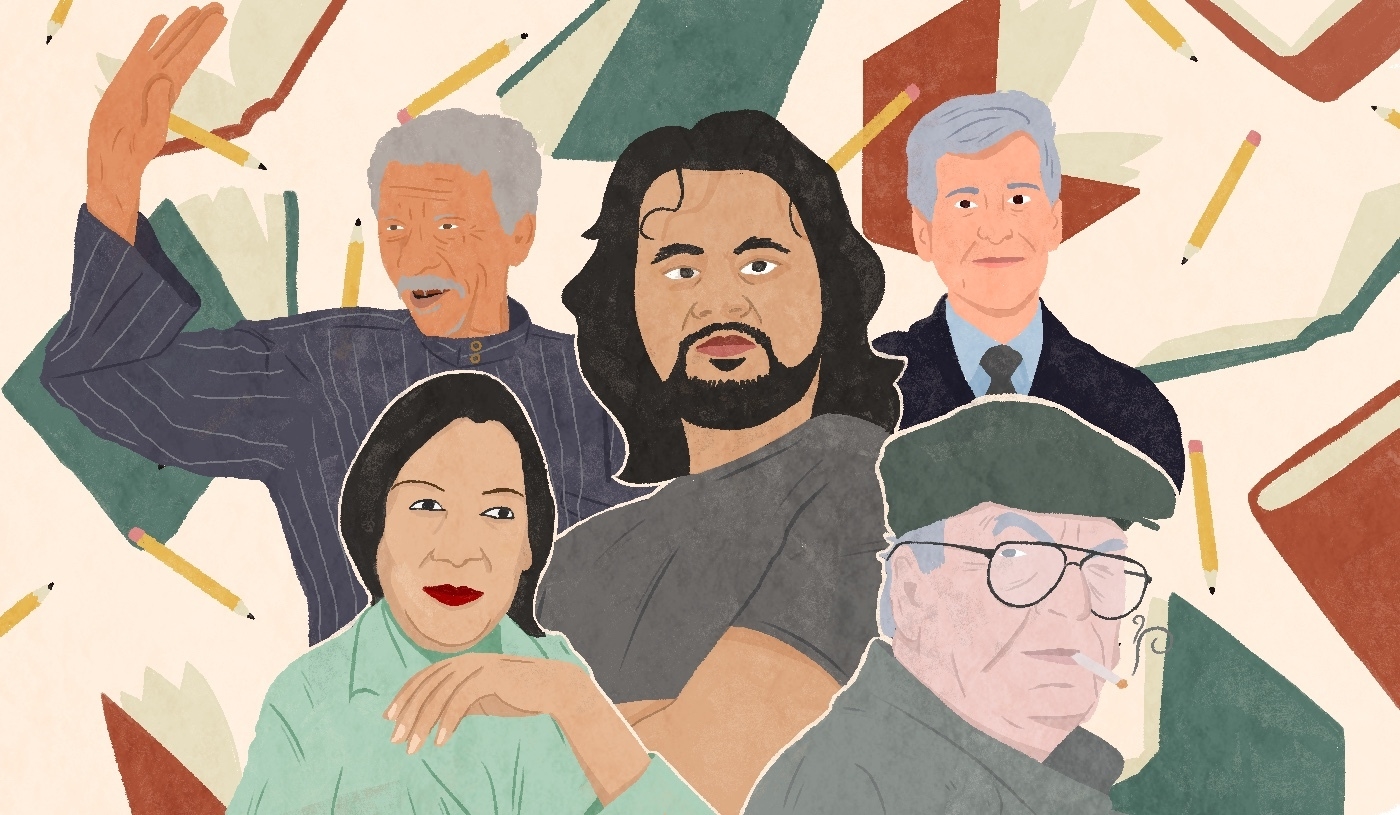
Across the Arab world, poetry is considered to be one of the highest art forms, with a heritage stretching back to the pre-Islamic era, and the epic odes of Imru al-Qais and Antarah ibn Shaddad.
Poetry continues to take a central place in Arab societies, and for many children raised in the region, the study of the Arabic language comes coupled with the study of classical poetry.
A common feature of social occasions in the region is to spontaneously recite verses of poetry that match the emotion and temperament of the gathering.
For centuries, poetry in the Arab world has dealt with issues as varied as a person's ancestry, the qualities of revered leaders, and the ideals of love, honour and justice.
In many ways, Arab poetry has evolved with the times, taking on new themes corresponding to political and social developments in the Arab world.
Stay informed with MEE's newsletters
Sign up to get the latest alerts, insights and analysis, starting with Turkey Unpacked
This is particularly evident from the 20th century onwards, with the growth of revolutionary movements against colonialism, foreign occupation and despotic governments.
Over the decades, poets have risked arrest, exile and even death for their prose, but despite attempts to stifle their expression, poets remain an important part of social movements across the region.
Here, Middle East Eye takes a look at five Arab poets, who feature the themes of politics and revolution heavily in their work.
1. Ahmed Matar
Iraqi poet Ahmed Matar is renowned for poetry that seamlessly shifts between dark humour and despair, reflecting a reality many in the Arab world have become accustomed to.
Born in 1952, his work is highly critical of Arab dictators and of their stifling of freedom, use of torture and the poor material conditions their rule had brought about.
Matar started his poetic career while a teenager, producing romantic poems, but his verse moved on to scathing criticisms of the political class in his adulthood.
He earned a reputation for his fierce odes early on in his career and would perform in front of large crowds.
Such critiques would have caught the attention of Iraq's Baath party, forcing Matar to move into self-imposed exile in Kuwait in his mid-twenties and later in London.
In one of his poems, entitled The Defector, he writes about the division and corruption within Arab political movements, and how there are so many factions, each plagued with conflict.
Another well known poem Even More Brutal than Execution is a criticism of Arab leaders clinging to power while their citizens suffered in poverty.
Execution is the least punishment an Arab individual can get.
Oh, is there anything more brutal than this?
Of course,
What would be even more brutal
Would be living in the Arab world!
Working for a newspaper in Kuwait, Matar's work gained vast audiences across the Arab world, particularly after he struck up a friendship with the Palestinian cartoonist Naji al-Ali.
The pair continued their association in London, where Ali would be assassinated by unknown gunmen in 1987.
In England, Matar's criticisms turned on the west, especially the hypocrisy of western governments when it came to dealing with the Arab world and for creating conditions in which Arabs were encouraged to feel ashamed of their culture. One of his poems during this period is titled, I am a Terrorist.
Shayma M.H, a US based Education and Arabic language consultant, has spent several years translating the work of Matar, amongst other Arab poets who famously wrote about politics and revolution.
Her blog, which launched in 2014, was started after realising that many of the poets behind powerful works were not known or available for readers in other languages.
"This translation project was an initiative to share an intimate insight into how Arabic poetry is regarded and articulated by the young and old in the Arab world right now," she told Middle East Eye. "Translation is our way of honouring and witnessing the lives and resistance of these authors," she added.
At the time of publication, Matar continues to live in London.
2. Ahmed Fouad Negm
Ahmed Fouad Negm, known as "el-Fagoomi" by fans, was born into a peasant family in a small village north of Cairo in 1929.
Like many others in his demographic, he was educated in a religious school, but was forced into work as a teenager to support his siblings after his father passed away. This period saw him placed in a orphanage for some time, and take on work as a shepherd, as well as other employment.
In 1946, Negm moved to Cairo, where he and his brother joined the protests against the British presence in Egypt.
Those early experiences of poverty and anti-colonial activism would influence Negm's poetry.
The poet shot to fame after forming a collaboration with the musician Sheikh Imam Issa at a local coffee shop frequented by students, leftists and people hungry for change.
His relatable and accessible style of writing meant he was widely regarded as a folk poet and man of the people.
Unlike other artists, who preferred formal Arabic in their poetry, Negm chose to write in colloquial Egyptian dialect.
Doing so made his work understandable by the poorer classes, and also gave it a plain-spoken quality.
His verses were deeply critical of Egyptian rulers including Gamal Abdel Nasser, Anwar Sadat and Hosni Mubarak.
Negm spent time in prison after the 1967 Arab defeat to Israel for insulting Nasser's leadership and was again imprisoned by Sadat for mocking his voice.
Given his decades long reputation as a voice of dissent, his poems were popular among the protesters who helped bring down Mubarak in the Egyptian Revolution of 2011.
One of his poems, The Brave Man is Brave, was broadcast in Cairo’s Tahrir Square during the anti-government protests. It reads:
The Brave man is brave
The coward is a coward
Come down with the brave
Down to the square
Negm died in December 2013 at the age of 84.
3. Tamim al-Barghouti
Nicknamed "the poet of Jerusalem", Tamim al-Barghouti is also a columnist, political scientist and widely recognised cultural commentator in the Arab world.
Barghouti took an interest in literature in his teenage years and like Ahmed Fouad Negm used colloquial language in his verse. Other influences included the Palestinian poet Mahmoud Darwish and the Iraqi writer Saadi Youssef.
The Egyptian-Palestinian was born in Cairo in 1977 to a literary family. His father was the Palestinian poet Mourid Barghouti and his mother was the renowned Egyptian novelist Radwa Ashour.
Mourid was part of a group of Palestinian intellectuals forced out of Egypt by the then president Anwar Sadat, during peace talks with Israel in the late 70s.
Both sides of his heritage would influence the younger Barghouti's poetry and writing, which were highly critical of the Egyptian government and the Israeli occupation of Palestine.
In his poem, In Jerusalem, Barghouti talks about the Israeli occupation of his homeland, painting a portrait of what life is like for Palestinians living with checkpoints and harassment from settlers. The poem also captured feelings of dispossession among Palestinians and Jerusalem's importance as a holy city.
His poem, Ya Masr Hanet (Oh Egypt, It’s close), was popular among protesters at Tahrir Square during the 2011 revolution and was performed by Barghouti to audiences across the Arab world on Al Jazeera.
Besides his poetry, his career has seen him work as a columnist for Lebanon's Daily Star newspaper, a UN official and as a doctoral candidate at Boston University.
4. Fadwa Tuqan
Palestinian poet Fadwa Tuqan is best known for her work on the experiences of Palestinian refugees, particularly the feelings of displacement that came with being expelled from the homeland and the dream of returning home.
Born in Nablus, her poetry was largely informed by the Balfour Declaration, which was announced in 1917, the year of her birth.
As part of the declaration, the British government promised the Jewish people a homeland in Palestine despite its existing Arab population.
Tuqan developed her style of poetry during the British occupation that preceded the establishment of Israel.
During the anti-British protests of the 1930s, the Palestinian youth exchanged letters with her brother, the poet and playwright Ibrahim Tuqan, who was based in Beirut.
It was through this correspondence that Fadwa developed her writing style.
Another big focus of Tuqan's poems was the Nakba (Catastrophe), which resulted in the displacement of more than 700,000 Palestinians to make way for the state of Israel in 1948.
She was notable for highlighting the injustices inflicted on the Palestinians while celebrating their spirit of resistance.
One of her most famous poems, titled Hamza, is written from the perspective of someone who is distressed about the Israeli occupation.
The titular Hamza interrupts the initial narrator of poem, explaining that Palestinians can endure anything.
"Sister, our land’s throbbing heart never ceases to pound,
and it perseveres, enduring the unendurable, keeping the secrets of mounds and wombs.
This land sprouting cactus spikes and palms also births freedom-fighters.
Thus our land, my sister, is our mother! "(Translation by Michael R Burch)
But while expressing his defiance, Hamza sees his house come crashing down.
Tuqan spent the middle years of her life studying English literature at Oxford and travelling across Europe, while also campaigning on women's issues.
She died aged 86 in December 2003.
5. Muhammad al-Maghut
While in prison for his membership of the banned Syrian Social Nationalist Party, Muhammad al-Maghut met dissident intellectuals who inspired his interest in poetry.
Despite not having a formal education, the Syrian writer developed a talent for verse and pioneering the concept of free verse poetry in the Arabic language.
Most poems until Maghut's era were written within the strict constraints of the classical style.
Like others in this list, Maghut was scathing about the material conditions of ordinary Arabs.
Some of the themes he explored in his writing included injustice, ethical decline amongst rulers and authoritarian governments.
In one of his poems, he writes about the state of the Arab world, and censorship in the media and corruption.
Iraq’s future is bleak
Palestine’s future is bleak
Freedom’s future is bleak
Unity’s future is bleak
Liberation’s future is bleak
Economy’s future is bleak
Culture’s future is bleak
Love’s future is bleak
Climate’s future is bleak
On top of that:
There’s a media blackout
a political blackout
a military blackout
an economic blackout
a cultural blackout
a sectarian blackout
On top of that an electric outage every half hour,
yet, despite it all, they only speak of transparency these days.
(Translation by Jadaliyya)
Besides his poetry, for which he won numerous awards over the years, he also worked on movies, plays and books. Maghut died in April 2006, aged 72.
This article is available in French on Middle East Eye French edition.
Middle East Eye delivers independent and unrivalled coverage and analysis of the Middle East, North Africa and beyond. To learn more about republishing this content and the associated fees, please fill out this form. More about MEE can be found here.


